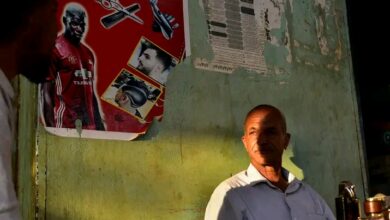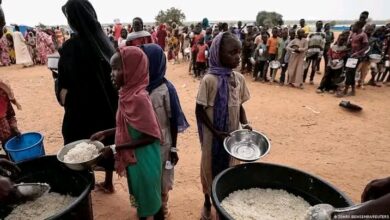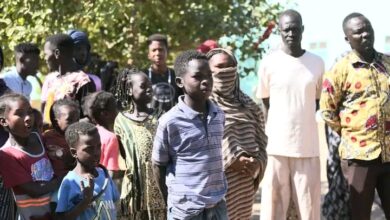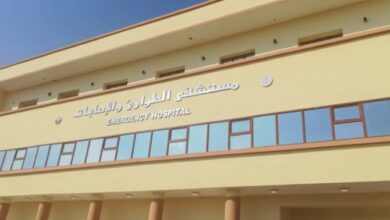Power and Water Outages Alarm Khartoum Residents and Threaten Students’ Future
Omdurman – Report by Bakhita Zayed Al-Safi
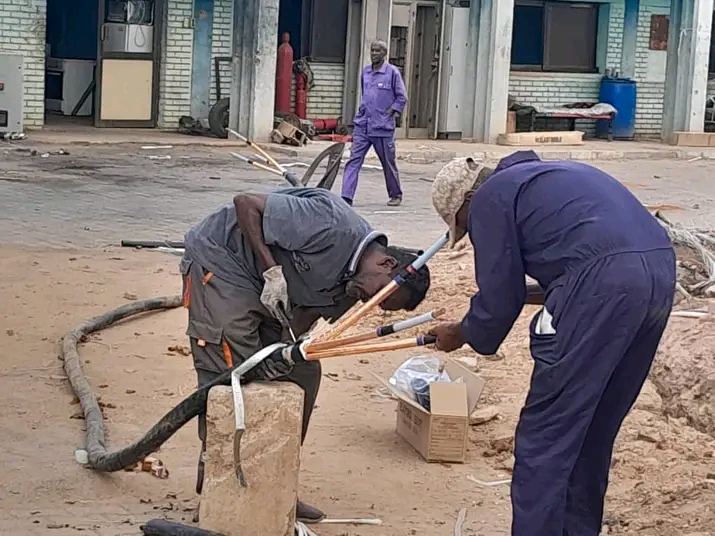
Residents stranded in Sudan’s capital cities—Khartoum, Omdurman, and Bahri—are experiencing a dire humanitarian crisis, as severe and prolonged power cuts lasting up to 18 hours a day and acute shortages of drinking water disrupt daily life and worry many citizens.
These conditions have significantly affected healthcare, education, and social services, in addition to impacting household and economic activities for thousands of families. The water supply interruptions have directly increased the suffering of the people
Lack of Income Sources
Rahma Al-Hafiz, a retired employee, told Mashawir platform:
> “The suffering has heavily burdened citizens who are forced to spend extra money—despite depleted savings—just to buy water and ice, even though incomes have vanished. But the need to preserve medication forces us to.”
She added:
> “Those of us with chronic illnesses, especially diabetics, need to store insulin. The ongoing outages have made the crisis worse. I’ve had to buy ice to preserve my medicine, despite high prices—each ice block now costs 20,000 Sudanese pounds.”
A Complicated Crisis
Housewife Samia Al-Tayeb from Al-Thawrat area in Omdurman told Mashawir:
> “People are going through a complex crisis due to the power outages, which disturb our lives and cause family tensions, especially since most income-generating activities have stopped—even the small daily jobs people rely on.”
She continued:
> “After my husband passed away and I became the sole provider, I decided to support my family and face life’s challenges. I approached a microfinance bank and received a loan. I bought a freezer and started making and selling ice cream—a favorite, especially in summer. I built a good customer base, and the project brought stability to my family.
> “But after years in this business, it’s now declining, and may stop altogether due to the blackouts. This is especially harmful to widows who depend on electricity for their small home-based food and beverage businesses, which they sell in markets and schools.”
Patients in Crisis
Suha Al-Tayeb, from East Nile, told Mashawir:
> “The lengthy blackouts have created life-threatening problems. I go to the market daily to buy ice—which is now scarce due to high demand—just to preserve insulin doses.”
She added:
> “I have to buy large amounts of ice daily, which is financially exhausting given the economic crisis. And even when power returns for six hours, it’s not enough to keep the fridge running properly.”
Suha stressed that:
> “Life without electricity has become unbearable, especially in hospitals and diagnostic centers.”
Struggles of Students
School children and students are also facing serious challenges—chiefly the shortage of drinking water at homes and schools, and frequent power cuts.
Hashim Al-Toum, a high school student, told Mashawir:
> “We face an acute drinking water shortage under very tough conditions, especially with rising temperatures and the spread of meningitis.”
He added:
> “We’re unable to study or prepare for exams properly due to the constant power outages.”
> “These circumstances have severely affected students’ academic performance across all levels.”
Water Crisis
Khartoum relies on 20 water stations—13 regular and 7 high-pressure—alongside 1,400 groundwater wells, all of which have gone out of service due to random shelling and the inability of maintenance crews to access the facilities. There’s also a shortage of water purification supplies. This has forced residents to line up at old wells and created a black market where water is sold for exorbitant prices.
Hatim Saad, a resident of Al-Salha in Omdurman, told Mashawir:
> “We’re living through a growing humanitarian catastrophe due to thirst. We’ve had no option but to fetch water directly from the Nile, despite the hardship and risk, as the river water is contaminated with sewage. Several people have contracted cholera.”
He added:
> “The main water problem has forced residents to travel long distances to fetch water using small carts known locally as ‘bal dardaga’, from old wells that were operated through community and official efforts before electricity was completely cut off.”
> “This is to avoid exploitation by vendors using donkey carts (‘karo’), who sell a barrel of water for 12,000 Sudanese pounds (about six U.S. dollars).”
He concluded:
> “People across Khartoum State are working day and night to find clean water, even if it means walking long distances. Sadly, many are now getting water from abandoned wells that haven’t been cleaned in almost two years—resulting in a rise in waterborne diseases.”

